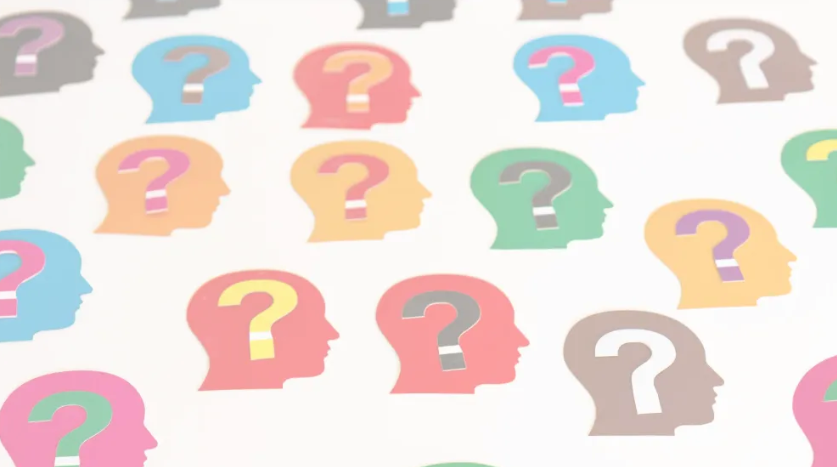15/07/2025

“Teachers are people who lead you and make you follow them” —
that’s something I came across the other day on a language teacher’s page. It’s such a common and generic phrase — one I’ve heard thousands of times in my life.
Forgive me for distracting you right from the start — but as with any good story, the plot twists early.
And this particular twist is about a question that’s been on my mind for years:
How do people actually decide they’re going to teach someone?
__________________________________________________________________
When I was much younger — specifically, in my first year of university — we (120 students from four different groups within the faculty) were asked to complete a task during a pedagogic lecture.
It turned out to be a psychological, professionally-oriented test.
Our goal was to answer a series of questions about the role of a teacher in the learning process and to prioritize various personal and professional qualities.
Once we had completed the test, the lecturer revealed the results based on our scores.
The highest score indicated those who could, as she put it, “truly call themselves teachers” — people who value empathy and compassion, who hold strong moral standards, who follow professional ethics, and who are driven by a deep sense of vocation.
In other words — people who had truly chosen the right profession.
Guess how many students received that top score?
Two. Including me.
That was the first time I truly believed I had chosen the right path.
____________________________________________________________________
The second time I reached my “aha” moment wasn’t in university. Again, it was back in Ukraine (I’d lived in Ukraine since I was born and for 35 years). I was waiting for the bus to get to the nearest city to visit some friends. I noticed a cute guy, around the same age as me. When we all boarded the bus, we ended up sitting next to each other. Almost from the start of our little journey, we started chatting. And probably he talked to me because he found me cute too in the first place, but the first thing he asked about was… my thumbs.
You’re probably wondering — what do thumbs have to do with teaching? Hold on a second.
The truth is that I do have an unusual shape of my thumbnails, and shorter thumbs themselves, compared to most people.
He asked me about them and asked specifically for permission to have a closer look.
It was not a typical way to chat someone up, obviously. Haha.
He immediately explained himself. He was into chiromancy (palm reading), and he said quite a few people have fingers like mine.
He began to explore my palms, and then he said something that deeply touched me.
Don’t get me wrong — I am actually the kind of person who doesn’t even believe in this stuff.
However, I do believe there are many things in the world we’ll never fully understand. And sometimes, they surprise us in strange, meaningful ways.

So he touched one particular part of my hand, showed me something, and said:
“You are the person who can teach people.”
(At that time, I was already teaching, and I took the words too literally.) So I proceeded with the question:
“What does that mean? You see the sign that indicates my profession or job?”
(Without, of course, giving any clue to him about what I really am or what I do.)
He responded with:
“No, not really. Palms never show something that specific. This sign,” — and he pointed to a small, raised area on the upper right side of my hand — “it means you were born with a gift. A natural ability to speak to people in a way that makes them listen. You have a gift for teaching, for explaining things clearly, for making people follow you if you want to.”
At that moment, I was stunned and intrigued. But I had a strong desire to count it as a true point about me.
I later figured that it was indeed true.
Finishing the story of the chiromancer — we had been in touch for quite a long time after that. And after that first striking encounter, I sometimes heard him say something that was like magic again — true in every word.
But still … I don’t believe in this stuff. Haha.
So, do you need more proof about me as an exceptional human being with the talent to teach, lead, and mesmerize others? Hehe.
_______________________________________________________
Let’s get back to the very beginning.
Having been officially marked (by both a test and a palm reader) as a gifted educator and educational leader, I’ve spent my life contemplating this talent.
Now, at 41, I’m still in that process — learning, refining, craving growth, sculpting my skills every day, and transforming alongside the relentless pace of modern life.
I’m not a fan of following what other educators do — unless they’re colleagues I respect or people I know personally.
Here’s why:
Too often, I simply can’t tolerate what I read, see, or hear.
Nonsense and a lack of competence pour out of people who call themselves “experts” — and who, without a shadow of doubt, post statements, opinions, and so-called “facts” about how learning works.
That’s my emotional trigger.
I’m actively working on not reacting to it — but I’m not yet at the point where it doesn’t affect me at all.
There are certain things I just can’t tolerate.
So I’m asking you my dear readers, especially those of you who use the services of educators — please:
Doubt what you’re told. Be curious. Ask questions.
Try to see clearly whether your teacher actually understands what they’re doing or whether they’re simply recycling assumptions, personal opinions, or outdated beliefs.
And don’t forget to ask yourself:
How ethical are they, really, in their work?
Let’s break it down.
My list of concerns. My major red flags:
1. Teachers who share private messages with clients
As a coach, I work according to ICF standards, one of which is confidentiality.
I see so many posts online on social media where people who are giving services (teachers included) share text messages with their clients or potential clients.
99% of the time, it’s to complain about them, letting anyone who reads comment and judge.
I wouldn’t like to be one of those clients, to be honest.
2. Teachers who tell you what works and what doesn’t
Teachers share “facts” about learning with you — what is helpful, what is not. What you should do, what you shouldn’t.
One essential truth:
There are no universal rules of learning.
But there is neuroscience — which you can hardly argue with.
That’s your responsibility: to ask your teacher some deeper questions.
If the teacher suggests you should do this or that or avoid doing something while learning a language — ask why.
Let me be specific here.
Some recent “discoveries” I’ve seen in random posts:
“Watching TV series in English or listening to podcasts in English will not help you improve your English.”
Truly, guys — if someone says that to you — run away and cover your ears.
I could explain now why it is so important to do this, and that many people speak English at a very high level specifically because of watching and listening without any teachers.
But that’s food for another article.
Just ask the teacher about focused or non-focused learning, or explicit and implicit learning. And hear them out.
Believe me — teachers who claim that watching or listening in your target language is not helpful don’t have a clue what that is.
And hopefully, they’ll be hooked and willing to learn.
3. Teachers who say: “Think in your target language” without understanding how to reach that point
Or:
“We’ll teach you how to think in your target language.”
Ask:
How?
Explain the mechanism to me.
What logic lies behind your statement?
Because for many, it’s just an attractive phrase.
When in reality — you do need to lead yourself to that point.
But you should be aware of the stages you need to go through on the way and how you can help yourself.
What is actually happening in your brain?
Why do you keep translating in your head?
How are languages connected in your brain?
You see how many whys?
And you need to figure out what to do about it.
4. Labeling you with levels
(Unless you need to pass a test to confirm your academic level)
So many teachers start the cooperation with new clients by assessing the level, then picking the textbook accordingly even if they assure you that they create their own materials, use authentic resources…
If they start with acknowledging your current level, they will for sure use adapted materials. Because otherwise — why on earth would they start by saying your level is A1 or B2?
But let’s think about it: when we use our native language, we use a beautiful mixture of levels, right?
We can say something like “What’s up?” or “Right?” for “Hello”
And then continue with “I’ve been contemplating for hours about different dimensions.”
Everyone seeks this in communication:
Adaptability — to the situation, to the speaker, to the topic.
Your brain doesn’t keep information in strict categories either.
It doesn’t create folders labeled “A1 words” or “C1 phrases.”
Giving yourself labels and sticking only to materials “of your level” is like driving a car only in first gear if you’re a beginner driver.
But it’s not going to work for your car, right?
It needs speed. It needs gear shifts.
Just like your brain needs variation, flexibility, and flow — like speed driving.
5. Teachers who mistake online games for real interactivity
Teachers confuse online games and activities where you need to click, match, correct word order with real interactive tasks.
But in reality, they just don’t know how to attract your attention or capture your focus. Especially when it comes to kids.
It’s a common myth that these games support learning. In fact, they do the opposite — they further erode students’ focus.
You think your students love those games and are learning a lot but their brains are just chasing quick and easy dopamine rewards.
Unfortunately, I could make my list of red flags longer. Because I’ve been inside the “system.”
For the last 15 years, I’ve been constantly searching for new teachers for my team.
I’ve had to go through all levels of hiring and interviewing hell (not always, but quite often) before finding one person I’d be glad to welcome to the team and trust with my clients.
Which brings us back to the question:
How do people decide, “I’m becoming a teacher”?
One more word about how “automated activities” or even “lesson plans” impact minds.
I’ve worked with teachers who relied entirely on automated platforms provided by the schools that hired them.
The platform dictated a fixed structure. Teachers weren’t expected to think, just guide students through each pre-made step. Students, in turn, clicked through lesson after lesson, homework after homework.
When I asked about the teaching process outside the platform, they were baffled.
I asked if they could create a plan for a lesson using a textbook (if we talk about standard teaching approaches) — they didn’t know what to say.
Can you imagine what would happen if I asked them to be truly flexible, to work with people’s goals, break those goals down, create personal plans even?
In the end — want to hear something funny?
Here’s what I read online today, from a random Ukrainian guy:
“We were always told that we need to learn English, because it will help you in life… and it turns out that the only people who really learned English are the ones who teach English now.”
And then, under that post, a comment from a random lady also in Ukraine:
“I don’t see anything bad in this idea. If you know the language, you can always make some easy money without even leaving your apartment.”
Do I even need to explain what I think about these thoughts?
I’ll leave that with you.
Later that day, I heard someone say this:
“In my profession, I also hear and read so much nonsense, but I don’t really care. Everybody’s just trying to make money the way they can. I don’t judge anyone for that.”
Right…
But it made me reflect again on one thing:
It’s our responsibility to doubt, to question, to do the fact-checking before we trust anyone.
Because you don’t want to end up paying someone who’s not fully qualified to teach you, coach you, or shape your thinking.
Remember how I started?
“Teachers are people who lead you and make you follow them.”
A teacher affects eternity. He can never tell where his influence stops.
— Henry Adams

Keep that in mind — because it’s not always for the good. Sometimes we fall into traps and follow the wrong people.
One last question I’m holding in my mind right now:
Has any learner ever asked the teacher?
“Why did you decide to become a teacher?”
Oh…
That could be THE question that reveals the truth. Huh?
I’d love to share more perspectives about what I believe — and how it really works — always grounding my statements in neuroscience, not assumptions.
You can find more reflections and insights in my other posts.
Thank you for reading.
